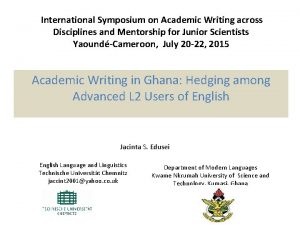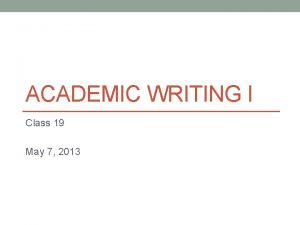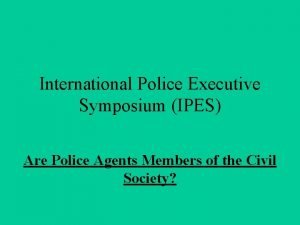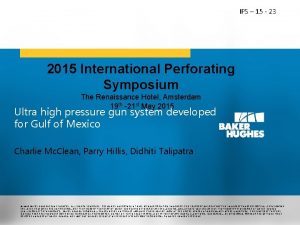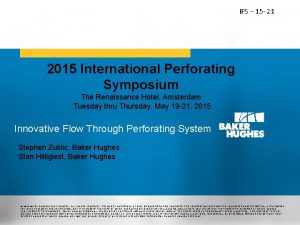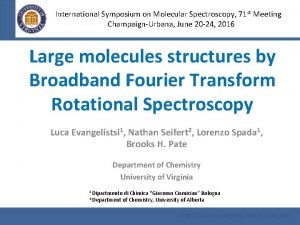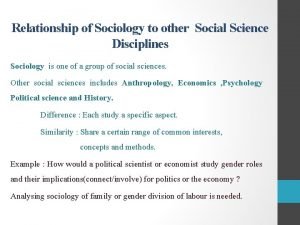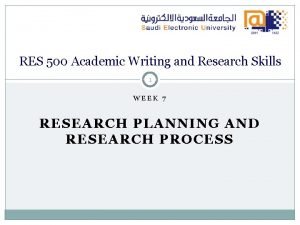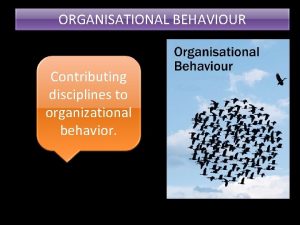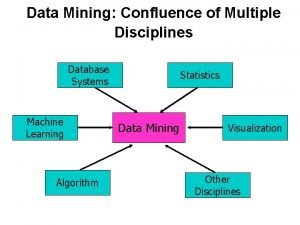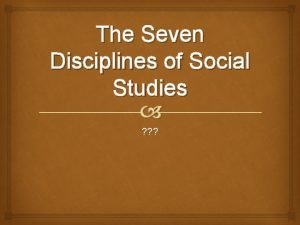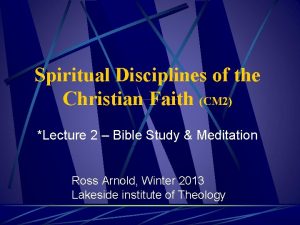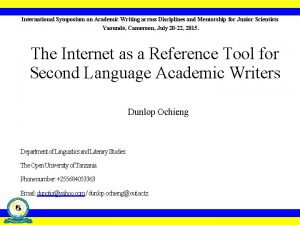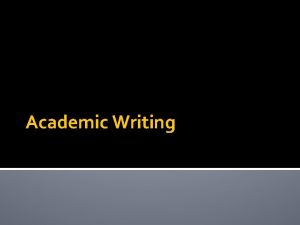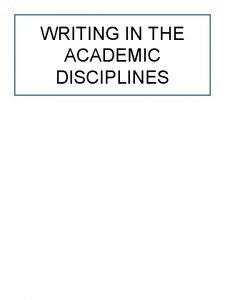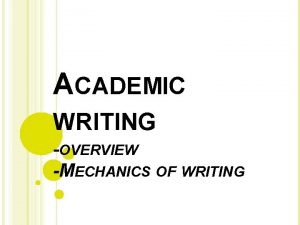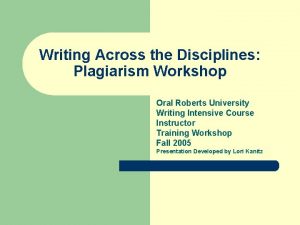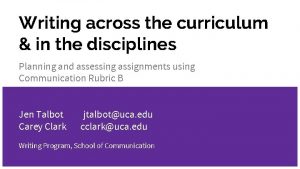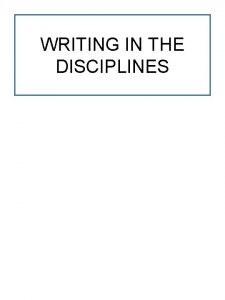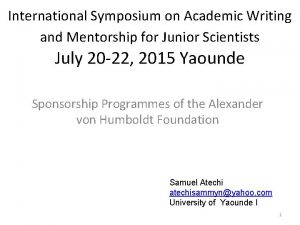International Symposium on Academic Writing across Disciplines and

























- Slides: 25

International Symposium on Academic Writing across Disciplines and Mentorship for Junior Scientists Yaoundé-Cameroon, July 20 -22, 2015 Academic Writing in Ghana: Hedging among Advanced L 2 Users of English Jacinta S. Edusei English Language and Linguistics Technische Universität Chemnitz jaccint 2001@yahoo. co. uk Department of Modern Languages Kwame Nkrumah University of Science and Technology, Kumasi, Ghana

Introduction Hedging/Hedges 1. 1 Methodology Summary References Background of the study • L 1 – about 81 languages in Ghana (2014 SIL International: http: //www. ethnologue. com/country/GH retrieved on 28. 05. 2014) • L 2 – English is the official language • English becomes the official code of instruction in class 4 (at app. age ten) up to university level • English is a course for the first two years of university studies (Bachelors degree). The course is called Communication skills / Academic Writing • No Academic Writing course - Research Methods 2

Introduction Hedging/Hedges 1. 2 Methodology Summary References Statement of the problem • Academic Writing research on Research Articles • Increase in Academic Writing research on Masters’ Theses (MA) Genre (Nkemleke, 2011; Afful & Mwinlaaru, 2012; Beyer, 2015) • Limited research on Academic Writing in Ghana • Limited research on Hedging in Ghanaian Academic Writing (Musa, 2014) 1. Hedging in English and Chemistry Master’s Theses in the University of Cape Coast. Journal of ELT and Applied Linguistics. Volume 2, Issue 3 2. Hedging In Academic Writing: A Pragmatic Analysis Of English And Chemistry Masters’ Theses In A Ghanaian University. English for Specific Purposes. Volume 15, Issue 42 3

Introduction Hedging/Hedges 1. 3 Methodology Summary References Research Questions 1. Which lexico-grammatical forms or strategies are used as hedging devices by advanced L 2 users of English in Ghana? 2. What are the pragmatic functions of the hedging devices used by advanced L 2 users of English in Ghana? 3. What is the complexity of the hedging strategies used by advanced L 2 users of English in Ghana? 4. Does the proficiency level of the advanced L 2 users of English in Ghana affect the choice of hedging devices? 4

Introduction Hedging/Hedges 1. 4 Methodology Summary References Theoretical Framework • Academic texts “seek to inform readers of activities, objects, or people in the world, to persuade them to some action or thought, or to seek to promote the writer’s scholarly claims and credentials” (Hyland Tse, 2004: 160) • “writing is always a personal and socio-cultural act of identity whereby writers both signal their membership in a range of communities as well as express their own creative presence”. (Hyland, 2006: 35) • “Hedging […] represents a major “rhetorical gap” that L 2 students have to cross before they can gain membership of a discourse community and pursue their chosen careers. ” (Hyland, 1995: 39) 5

Introduction Hedging/Hedges 2. 1 Methodology Summary References Hedging/Hedges: Definition • Since coinage – „words whose job it is to make things more or less fuzzy“. Lakoff (1972) • Other definition - Brown & Levinson (1987), Biber (1988), Crismore & Farnsworth (1990), Collins (1994), Dudley-Evans (1994), Schröder& Zimmer (2007), Hyland (1998), etc. • Textual strategy of using linguistic devices to - express lack of complete commitment to the truth of an accompanying proposition - present a proposition/claim as an opinion in an objective manner Or simply • Process by which a writer or writers distance themselves from the claim that they wish to make (Dudley, 1994) 6

Introduction Hedging/Hedges 2. 2 Methodology Summary Categories of Hedging References (Hyland, 1994; Hyland, 1998; Malášková, 2011; Nkemleke, 2011) Major Categories Sub-categories Lexical Hedging • • • Epistemic modal verbs Epistemic lexical verbs Epistemic adverbs Epistemc adjectives Epistemic nouns Strategic/ Non lexical Hedging • Personal attribution • Impersonal structures referring to model/method/experimental conditions/etc. • Attribution to literature • Reader engagement structures (questions, conditionals, reference to testability, admission of lack knowledge, etc. ) • Epistemic Modality – evaluation of the chances that a certain hypothetical state of affairs under consideration (or some aspect of it ) will occur, is occuring or has occurred in a possible world… (Nuyts, 2001: 21). 7 • The writer‘s opinion about the truth of a claim

Introduction Hedging/Hedges 2. 3 Methodology Summary References Semantic Functions of Hedges According to Malaskova (2011: 145) 8

Introduction Hedging/Hedges 2. 3 Methodology Summary References Semantic Functions of Hedges According to Malaskova (2011: 147) 9

Introduction Hedging/Hedges 2. 4 Methodology Summary References Hedging Complexity • Simple hedging only one form of hedging strategy (lexical or non lexical) These mean scores suggest that the two sex groups agreed that they enjoyed mathematics. (ED 0042006 M) Judgement verb • Compound hedging More than one form of hedging strategy (two or more lexical hedges or lexical hedge(s) and non-lexical hedge) This would seem to indicate that an increase in knowledge and skills leads to tolerance even to compassion and empathy. (ED 0322010 M) Modal + Evidential verb + Judgemental verb 10

Introduction Hedging/Hedges 3. 1 Methodology Summary References Advanced Users of English Post graduate students: • Masters level • Doctorate level • Post-Doctorate level Academic texts • Essays • Term papers • Theses • Articles • Books Corpora • Principal – MA theses • Secondary – ICE-Gh Academic Writing 11

Introduction Hedging/Hedges 3. 1 Methodology Summary References Advanced Users of English MA theses : • Average length : 20, 000 to 30, 000 words • Humanities and social sciences • Three universities in Ghana: 1. Kwame Nkrumah University of Science and Technology, 2. University of Education Winneba, 3. University of Cape Coast • File name: ED for Education, ENG for English etc. + year of submission (2003 -2013) + Gender (M/F) 12

Introduction Hedging/Hedges Methodology Summary References Theses component 13

Introduction Hedging/Hedges Methodology Summary References Data Description • Original MA theses: PDF documents • Written according to Swales‘ IMRa. D model (Swales, 1990) • Authors are Ghanaians • Save Files as PDF documents • Convert to Text files and Edit: Delete paratext Tables Figures Diagrams 14

Introduction Hedging/Hedges 3. 1 Methodology Summary References Advanced Users of English ICE-Gh Academic Writing : • Average length : 2, 000 words • Humanities and social sciences • Mostly research articles • Authors hold at least MA degrees, lecturers, seasoned writers (published more than oncce) • For example: W 2 A-002 • Sarpong, P. (1967). Ghana in Retrospect: some aspects of Ghanaian culture. Ghana Publishing Corporation. • Sarpong, P. (1977). Girls‘ Nobility Rites on Ashanti. Tema. Ghana Publishing Corporation. 15

Introduction Hedging/Hedges Methodology Summary References ICE-Gh Academic Writing component 16

Introduction Hedging/Hedges Methodology Summary References Description of authors of ICE-Gh Ac. W 17

Introduction Hedging/Hedges Methodology 3. 2 Summary References Data Analysis • Ant. Conc 3. 2. 4 w: A freeware, multi-platform, multi-purpose analysis kit - the number of times the target word or phrase occurs will be counted in the different texts. • Quantitative analysis : frequency of occurrences normalised per 10, 000 words • Qualitative analysis: epistemic/non-epistemic use, pragmatic functions, complexity 18

Introduction Hedging/Hedges Methodology Summary References Analysis of indicate 19

Introduction Hedging/Hedges 3. 3 Methodology Summary References Preliminary Analysis Sample 1. Gh. E-MA • 24 Theses • • 2. ICE-Gh – Academic Writing • 40 Articles and Book extracts Total No. of word tokens: 591, 004 • Total No. of word tokens: 109, 078 Average length : 20, 000 to 35, 000 words • Average length: 2, 000 to 2, 065 words 20

Introduction Hedging/Hedges 3. 4 Methodology Summary References Preliminary Data Analysis • Based on most frequently used hedges in Nkemleke (2011) and Beyer (2013). Modals Adjectives Adverbs Evidential verbs Judgement verbs Nouns may might could would likely possible clear probable obvious evident certain usually probably certainly apparently possibly perhaps typically seem appear tend suggest think assume indicate possibility probability assumption 21

Introduction Hedging/Hedges 3. 5 Methodology Summary References Preliminary Results 0. 6 0. 5 0. 4 0. 3 Gh. E-MA ICE-Gh Ac. W 0. 2 0. 1 0 Epistemic modals Epistemic Adjectives Epistemic Adverbs Epistemic Evidential Epistemic Judgement Epistemic Nouns verbs 22

Introduction Hedging/Hedges Methodology Summary References Summary • Preliminary results do not answer all research questions. • Differences seem to exist in the use of hedging devices depending on the level of proficiency of advanced L 2 users of English. (Increase corpus size? ) • Epistemic nouns appear to be the least used in the preliminary analysis. (Exclude from overall analysis? ) • Final Corpus size still under consideration: Option 1: Only Humanities and Social Sciences (more than 70 edited files) Option 2: Humanities and Social Sciences compared to Natural Sciences (collected from field research) 23

Introduction Hedging/Hedges Methodology Summary References Lexical hedging devices to be considererd Modal Adjectives Adverbs Evidential verbs Judgement verbs Nouns may might could would likely possible probable usually probably apparently possibly perhaps presumably relatively seem appear tend seek attempt report note suggest think assume indicate believe imply possibility probability assumption likelihood 24

Introduction Hedging/Hedges Methodology Summary References • Crismore, A. & Farnsworth, R. (1990). ‘Metadiscourse in popular and professional discourse’, in W. Nash, W. (ed. ) The Writing Scholar: Studies in Academic Discourse, Newbury Park, CA: Sage Publications. • Dudley-Evans, T. (1994). Academic text: The importance of the use and comprehension of hedges , ASp, p. 5 -6, mis en ligne le 06 décembre 2013, Retrieved on February 5, 2014. URL : http: //asp. revues. org/4054 ; DOI : 10. 4000/asp. 4054 • Hyland, K. (1995). The Author in the Text: Hedging Scientific Writing. Hong Kong Papers in Linguistics and Language Teaching, 18, 33 -42. • Hyand, K. (1998). Hedging in Scientific Research Articles. Amsterdam/Philadelphia: John Benjamins. • Hyland, K. (2002). Authority and invisibility: authorial identity in academic writing. Journal of Pragmatics 34, 1091– 1112 • Hyland, K. & Tse, P. (2004). Metadiscourse in academic writing: A reappraisal. Applied Linguistics 25 (2): 156 – 177 • Hyland, K. (2006). English for Academic Purposes: An Advanced Resource Book. London: Routledge. • Malášková, M. (2011). Hedging in Research Articles: Humanities and Social Sciences Compared. In J. Schmied (ed. ) Academic Writing in Europe: Empirical Perspectives. REAL Studies 5. Göttingen: Cuvillier. Verlag. 143 – 156. • Musa, A. (2014). Hedging In Academic Writing: A Pragmatic Analysis Of English And Chemistry Masters’ Theses In A Ghanaian University. English for Specific Purposes World, ISSN 1682 -3257, www. esp-world. info, Issue 42, Vol. 15 • Musa, A. (2014). Hedging in English and Chemistry Master’s Theses in the University of Cape Coast. Journal of ELT and Applied Linguistics. 2: 3, 53 -71. • Nkemleke, D. (2011). Exploring Academic Writing in Cameroon English: A Corpus-based Perspective. Göttingen: Cuvillier. • Nuyts, J. (2001). Epistemic Modality, Language, and Conceptualization: A Cognitive- Pragmatic Perspective. 25 Amsterdam & Philadelphia: John Benjamins Publishing Company.
 Academic english reading and writing across the disciplines
Academic english reading and writing across the disciplines Organizational patterns in reading
Organizational patterns in reading What is technical academic writing
What is technical academic writing Business writing vs academic writing
Business writing vs academic writing International police executive symposium
International police executive symposium Ips perforating
Ips perforating International perforating symposium
International perforating symposium Ips perforating
Ips perforating Ips perforating
Ips perforating International perforating symposium
International perforating symposium International perforating symposium
International perforating symposium International symposium on molecular spectroscopy
International symposium on molecular spectroscopy Relationship between sociology and other social sciences
Relationship between sociology and other social sciences Generic elective academic writing and composition
Generic elective academic writing and composition Academic writing and research skills
Academic writing and research skills Art as a humanistic discipline by erwin panofsky
Art as a humanistic discipline by erwin panofsky Disciplines of organisational behaviour
Disciplines of organisational behaviour Interdisciplinary multidisciplinary transdisciplinary
Interdisciplinary multidisciplinary transdisciplinary Data mining confluence of multiple disciplines
Data mining confluence of multiple disciplines Data management disciplines
Data management disciplines What is customer portfolio management
What is customer portfolio management Engineering disciplines
Engineering disciplines What are the 7 disciplines of social science
What are the 7 disciplines of social science The value disciplines model
The value disciplines model 10 spiritual disciplines
10 spiritual disciplines Faith cm
Faith cm
